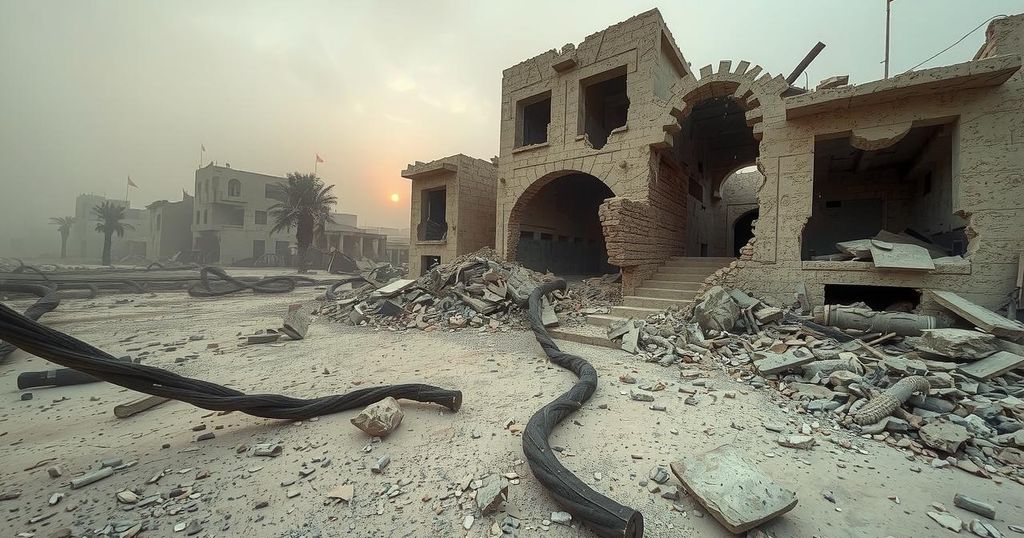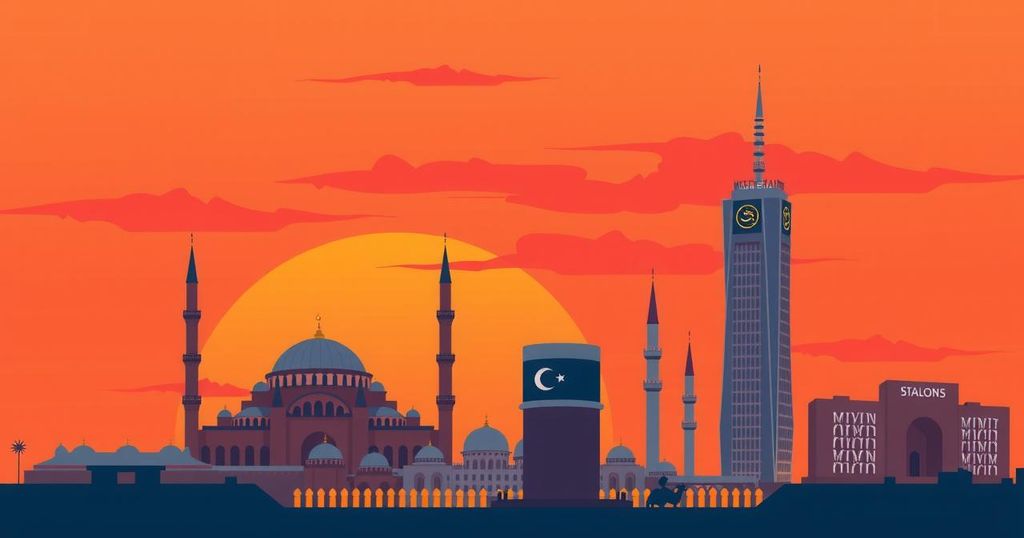Jordan has commenced evacuating sick and injured children from Gaza amidst fears of U.S. President Trump’s plans to displace Palestinians. This humanitarian effort, coordinated with the World Health Organization, aims to provide medical assistance while addressing broader geopolitical implications. The ongoing discussions among Arab leaders reflect a collective opposition to potential population transfer policies, raising concerns over domestic stability in Jordan.
In an effort to assist those affected by the ongoing crisis, Jordan recently received its first convoy of sick and injured children from Gaza. Among these children is 10-year-old Bilal, who has suffered severe eye injuries. His father expresses hope that Bilal will receive the necessary surgical treatment. The arrival of these children in Jordan represents a humanitarian gesture amidst fears of potential plans proposed by U.S. President Donald Trump that could lead to the mass displacement of Palestinians from Gaza to neighboring countries.
This medical convoy, consisting of Bilal and approximately 30 additional children along with 44 caregivers, arrived in Jordan on March 3, coordinated in collaboration with the World Health Organization. While these efforts coincide with a meeting of Arab leaders in Egypt to discuss alternative plans to Trump’s controversial proposal of clearing Gaza, they also highlight Jordan’s commitment to humanitarian aid in the face of an ongoing humanitarian crisis.
UNICEF has estimated that 25,000 children have been injured during the 15-month conflict in Gaza. With the majority of healthcare infrastructure in Gaza severely compromised, Jordan’s efforts have been crucial in providing medical relief to these vulnerable individuals. Jordan has historically engaged in significant humanitarian operations in Gaza but aims to strengthen its diplomatic stance by proactively addressing the needs of Gazan citizens.
Jordan’s actions are seen as strategic, with Joseph Al Momani, director of the Center for Strategic Studies, suggesting that these humanitarian efforts have alleviated some U.S. pressures regarding the Palestinian situation. The prompt initiation of the medical convoy was endorsed by King Abdullah II, who had previously communicated Jordan’s readiness to provide care during a meeting with President Trump.
The geopolitical ramifications of Trump’s plans for Gaza remain a concern for Jordan, particularly regarding domestic stability due to the substantial Palestinian population within its borders. Reports indicate a shared apprehension among neighboring countries, particularly regarding any potential transfer of Palestinian populations, which is seen as a breach of international law and a violation of Jordan’s peace treaty with Israel.
Former Jordanian Foreign Minister Marwan Muasher emphasized the need for Jordan to navigate these delicate situations without direct confrontation, advocating for a cautious approach that communicates the risks associated with potential population transfers to influential U.S. entities. Jordan is also actively fortifying its international ties to withstand pressures arising from Washington.
Though the likelihood of a forced transfer of Palestinians to Jordan appears slim, analysts suggest that enduring relationships with regional powerhouses are vital for safeguarding Jordanian interests. With the complexity of the situation in Gaza and the West Bank, the ramifications of Trump’s policies on these areas could evoke further concerns for Jordanian leadership.
Jordan’s recent humanitarian undertakings to assist children from Gaza illustrate a strategic approach to address the ongoing crisis while communicating the risks of potential displacement policies proposed by the Trump administration. Despite the rejection of these plans by Arab leaders, Jordan continues to fortify its international relationships and maintain its peace treaty commitments to uphold domestic stability. The geopolitical challenges surrounding the wider Palestinian issue necessitate careful diplomatic engagement to avert future crises.
Original Source: www.politico.eu




